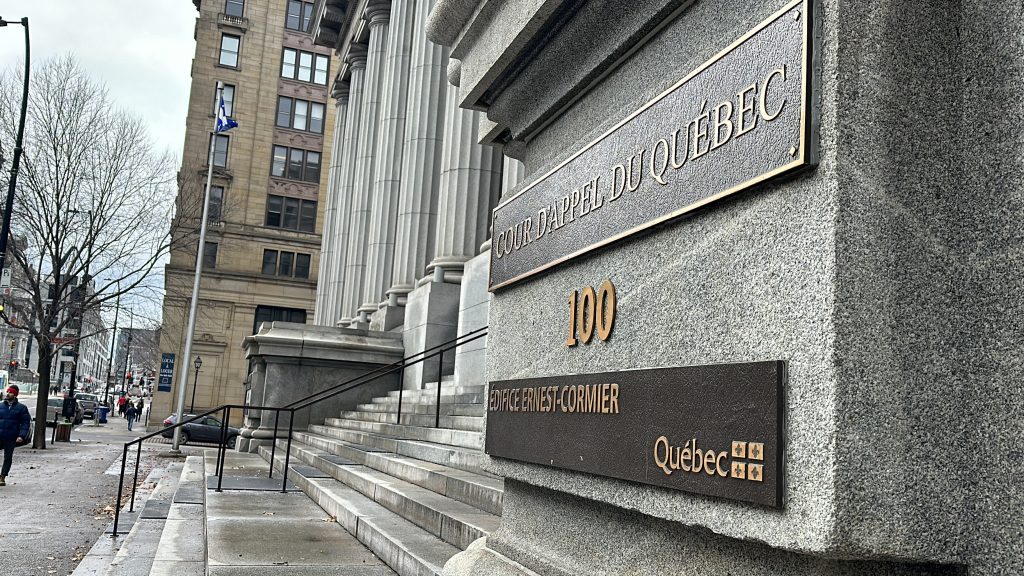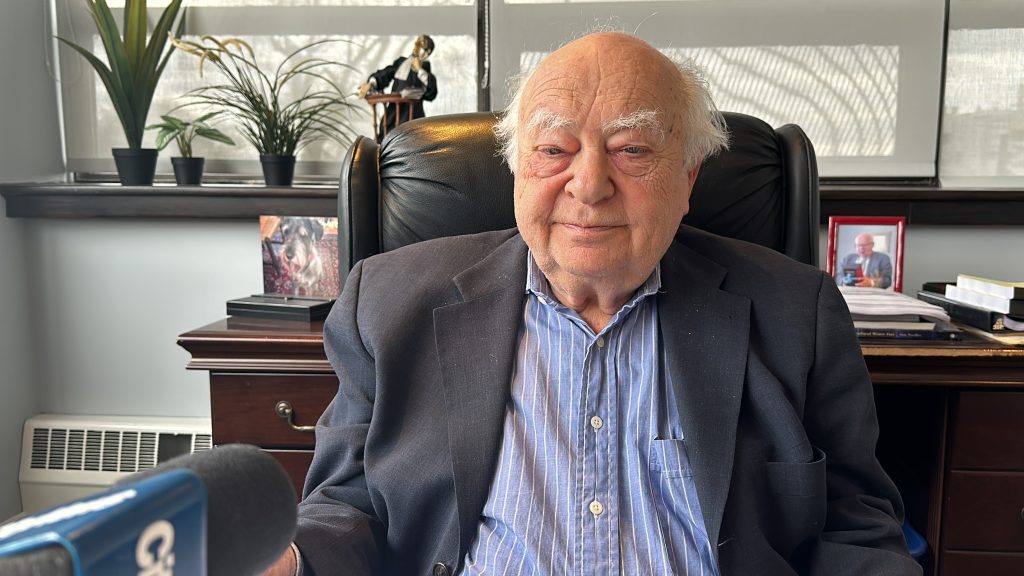Critics of Quebec’s Bill 21 anxious on eve of ruling from Court of Appeal
Posted February 28, 2024 3:36 pm.
Last Updated February 28, 2024 6:33 pm.
Montreal teacher Maha Kassef is anxiously awaiting the judgment from the Court of Appeal on the constitutionality of Quebec’s Bill 21.
The legislation bans public sector workers like teachers and police officers from wearing religious symbols while on the job.
Three judges will rule on the secularism law and make the decision public Thursday afternoon.
“I want to hear that it’s not a constitutional law,” Kassef told CityNews. “I want to hear them uphold the rights of every citizen.
“I want to see that those doors that have been shut in my face will now be reopened, that I can suddenly apply for a higher-level position within the same ward where I am, because I cannot do that right now.”

Kassef is grandfathered, meaning she can wear her hijab to work since she was hired before Bill 21 was introduced. But for that to work, she must stay in the same position in the same school board.
“I cannot apply or I cannot go back to school and get my credits for being a principal, let’s say, or I cannot even apply to a position that is considered a higher position than my current position,” she said. “The only way you can be hired in another school board is if you take it off and you show up to work without it.”
The law, which targets government employees in positions of authority, is protected by Quebec’s notwithstanding clause. When it was adopted, Premier François Legault described it as moderate and a reflection of the views of the majority of Quebecers.
But Kassef says it’s only furthered the teacher shortage and resulted in unqualified teachers in classrooms.
“We’re willing to put up with that in our classrooms in Quebec rather than have someone who has a cross around their neck or something on their head and say, ‘well, at least you’re qualified and you have a Bachelor’s degree in education and you know what you’re doing.’ And that to me is very sad because this is a sabotaging future generations. This is us telling them that you’re not worthy of the best that we can offer you.”
Supporters and opponents of Bill 21 had appealed a lower court ruling that largely upheld the ban on religious symbols, except for English-language school boards and elected members of the National Assembly.
Now the appeal court has questions to answer such as, can the Quebec government impose its version of secularism on all public bodies.
“The court could make a very big dent in this law,” said lawyer Julius Grey. “There might still be things that would survive, but it would be a much more limited law. Because you see, Quebec sees this laicity, as they call it, as an essential part of its identity. In the same way, many of the minorities view the use of religious signs as an essential part of their cultural and religious views.
“So it’s a clash between those two.”

It’s possible the case goes all the way to the Supreme Court, which could take at least another year to settle.
“To be completely hopeless is to give up. That’s how I see it,” Kassef said. “So I cannot be completely hopeless. I can be frustrated at the situation. And I can be frustrated at the process that we have to go through in order to be understood and heard. But I’m not willing to give this up.”



